Start Here
An up-to-date index of everything you can read in this blog. Start here if you are new, or if you want to review past articles you may have missed.
Welcome to Mostly Harmless Ideas!
This post is an introduction to Mostly Harmless Ideas, as well as an updated index of the most relevant content I’ve posted as of January 2024. These are mostly long-format, evergreen, educational posts on many topics in Computer Science written for a broad audience, plus some discussions, insider posts, and other casual articles. You can always see everything in the archive.
If you’re new here, this is a guide to exploring the topics I’ve written about. If you’re a regular reader, this may be a chance to find an interesting older post you might have missed or to fill any gaps in previous articles you’ve read.
I’ll keep this post updated with links to all articles organized in a way that’s easy to browse, depending on your interests and background, and I will send bi-monthly updates via email to you.
I hope you find something interesting to read!
One last thing before moving on. Let me introduce you to The Science of Computation, a book I’m writing that will take you on a journey across and throughout all of computer science. It’s the perfect gift for someone just getting started in a CS major, thinking about getting in, or just curious about this world.
You can support the book by getting an early access pass, which includes frequent updates for all future versions.
The Mostly Harmless AI Newsletter
The Mostly Harmless AI Newsletter is the only subscriber-exclusive content I write regularly. It’s a bi-weekly article discussing relevant and recent AI and Computer Science topics.
These articles are more opinionated and less evergreen than the rest. I write them for an audience interested in staying up-to-date with current trends but looking for deeper discussions that bypass the prevalent hype in the field. The latest issue was a special, free article on AGI and what we need to get there.
If you think this would interest you, here’s a special discount that is also the best way to support my writing and allow me to spend time on educational content.
Here are the issues from 2023:
There are many more benefits to a paid subscription, but if you can’t or don’t want to get one, I recently added a lifetime subscription option —pay once and become an insider member forever! If you’re sick of yet another subscription, this may interest you.
Introduction to Computer Science
Articles in the Computer Science section are meant to work as introductory topics on Computer Science, suitable for all audiences. I write them mainly thinking about people coming from outside to the world of Computer Science: students, professionals from other domains, journalists, or just laypeople interested in knowing what this is about.
You can start reading the following post that summarizes the whole field:
Foundations of Machine Learning
Once you read that big post, you can explore the series on the Foundations of Machine Learning.
The next two articles are already in the making. They will discuss several modeling paradigms and techniques to evaluate and compare different models.
(This is an ongoing series. I will link to all posts here as they are published.)
Origins of CS
A short series spanning from ancient computing devices to Alan Turing building the first general-purpose computer and establishing the foundational theory of the field.
The first entry in the series focuses on Leibniz’s dream of a computational language.
The second entry takes us all the way to Alan Turing and the invention of Computer Science as a field.
The third entry deals with complexity, specifically the P vs NP problem.
(This is an ongoing series. I will link to all posts here as they are published.)
Individual articles
I also write individual articles on specific algorithms or concepts. These need not be read in any specific order.
Coding Lessons
I recently began crafting coding lessons as short, hands-on articles suitable for all skill levels, from coding novices to experienced software developers. These lessons focus on accomplishing one specific task, primarily related to Python, machine learning, and artificial intelligence. However, I may explore other topics in the future.
The first lesson covers building an application that allows you to chat with a PDF. We'll use Streamlit, a large language model, and a vector database to index the PDF and ask arbitrary questions.
The second lesson is similar in spirit, but this time, we answer custom user queries.
Essays on Science, Education, and Life
Essays are opinionated on the subjects I care about most, mostly science and education.
The one I’m most proud of is a sort of manifesto for a techno-pragmatist philosophy, in stark contrast with both the pessimistic and over-optimistic extremes that abound in the internet.
I wrote a long rant on improving peer review by adopting an open-source ethos.
And I’ve written a few essays on teaching principles and education in general. These two are about changing the mindset from individual quantitative evaluation to a more team-based and project-based framework.
This one is about how to structure educational content, from theory to applications or the other way around, depending on the nature of the material.
This essay discusses the benefits and drawbacks of nurturing a competitive mindset in computer science education.
This one is about how to think like a computer scientist.
The following one is about why writing online is actually good for you, regardless of whether you get readers or not.
And the last one is a rather emotional rant that I wrote during a very scary medical issue for my youngest daughter.
Philosophy of Computer Science
The Philosophy section is where I explore the philosophical implications of Computer Science. The first article is about the nature of thinking, a non-traditional reading of TUring’s seminal paper where he defines the Turing Test.
This second post is a detailed exploration of the notion of Truth, and how it can (or cannot) be defined objectively for any domain.
Other stuff
These are two written exchanges I had with incredible thinkers about various technical and philosophical topics.
This is a short index to some pretty cool Twitter threads I made back in the days when Twitter was cool.
And this is a rather silly post I wrote for my 34th birthday with some of the most important lessons I’ve learned about life.
Final words
This is not a comprehensive list of everything I’ve written but an overview of the most relevant and, in my opinion, exciting posts. You can check everything else in the archive.
I hope these links provide you with some insightful or at least intriguing topics to read about. Let me know if you want me to dig deeper into these topics. The opinion of readers like you fuels my desire to write more.







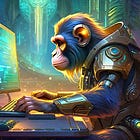
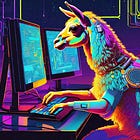
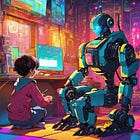
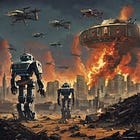


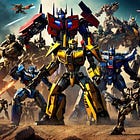





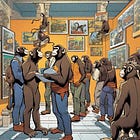

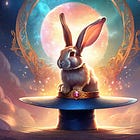
















Hey Ale -- Any chance Founding memberships at the $100 level grandfather into the new lifetime membership? =D
Bookmarked! What a resourceful page